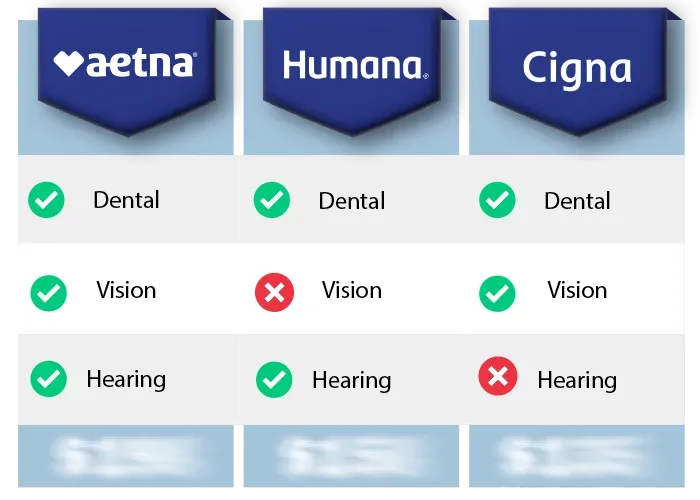
The Intricacies of Hearing Aids and Medicare: Deciphering the Sound of Coverage
The Intricacies of Hearing Aids and Medicare: Deciphering the Sound of Coverage
When diving into the vast world of Medicare, many beneficiaries are left with questions about coverage specifics, especially when it comes to essential healthcare items like hearing aids. Auditory health, pivotal for communication and overall well-being, becomes even more crucial as we age. This article seeks to untangle the complexities surrounding Medicare's stance on hearing aids.
1. The Auditory Health Landscape
Hearing loss is not just an inconvenience; it's a health issue that can affect various aspects of an individual's life, from interpersonal relationships to cognitive functions. As the golden years approach, the likelihood of experiencing hearing loss increases, making hearing aids an essential tool for many.
2. Traditional Medicare and Hearing Aids
Medicare, a federal health insurance program, primarily serves people over 65. Original Medicare, consisting of Part A (hospital insurance) and Part B (medical insurance), unfortunately, does not cover hearing aids or exams for fitting them. This lack of coverage leaves many beneficiaries searching for alternative ways to fund their auditory health needs.
3. Navigating Medicare Advantage Plans
Unlike Original Medicare, Medicare Advantage (Part C) plans are offered by private insurance companies. These plans often include benefits not found in Original Medicare, potentially including hearing health services and aids. However, it's essential to carefully review each plan's specifics, as coverage can vary widely between providers.
4. The Cost Factor: Why Aren't Hearing Aids Covered?
Hearing aids, despite their necessity for many, can be expensive. The lack of comprehensive coverage from Original Medicare stems from the program's foundational principles, established when hearing aid technology was less advanced and less prevalent. Over time, the conversation about their inclusion has evolved, but changes to Medicare's structure and coverages are slow-moving.
5. Alternative Financial Avenues
For those not covered by Medicare Advantage plans, there are alternative routes to explore:
State Programs: Some states offer assistance programs to help cover the cost of hearing aids for qualified individuals.
Non-Profit Organizations: There are non-profit entities dedicated to auditory health that may provide financial assistance or even free hearing aids for those in need.
Payment Plans: Many audiologists or hearing aid providers offer financing options to break down the cost of hearing aids into more manageable monthly payments.
6. The Importance of Regular Auditory Check-ups
Even if one's Medicare plan doesn't cover the full cost of hearing aids, beneficiaries should not neglect regular hearing check-ups. Detecting potential issues early can lead to better outcomes and may result in lower long-term costs.
7. The Future of Hearing Aid Coverage
The call for comprehensive hearing aid coverage under Medicare is growing louder. With the advancements in hearing aid technology and the increasing understanding of auditory health's importance, there's hope that future Medicare policies will reflect these needs more accurately.
8. Conclusion: The Sound of Progress
As beneficiaries and advocates continue to voice the importance of comprehensive hearing aid coverage, the landscape of Medicare and auditory health continues to evolve. By staying informed and exploring all available options, individuals can find the best path forward for their hearing health needs.

Copyright © 2025 Senior Benefits Guide All Rights Reserved.
204 Church St Suite 1A, Boonton NJ 07005
Disclaimer: This website is not affiliated with the Medicare/Medicaid program or any other government entity. The information provided on this website is for informational purposes only. It is not intended to be, nor does it constitute any kind of financial advice. Please seek advice from a qualified professional prior to making any financial decisions based on the information provided. This website acts as an independent digital media & advertising publisher. This webpage is formatted as an advertorial. An advertorial is an advertisement that is written in an editorial news format. PLEASE BE AWARE THAT THIS IS AN ADVERTISEMENT AND NOT AN ACTUAL NEWS ARTICLE, BLOG, OR CONSUMER PROTECTION UPDATE. This website MAY RECEIVE PAID COMPENSATION FOR CLICKS OR SALES PRODUCED FROM THE CONTENT FOUND ON THIS WEBPAGE. This compensation may affect which companies are displayed, the placement of advertisements, and their order of appearance. Any information, discounts, or price quotations listed may not be applicable in your location or if certain requirements are not met. Additionally, our advertisers may have additional qualification requirements.
Our goal is to provide exceptional service. One of our agents may reach out to you to discuss your order, ask for feedback, and/or see if you need any assistance with your products, services, or plans, at the phone number you provided regardless of your do-not-call list status. You may opt-out of further contact at any time by simply telling our customer service team that you would no longer like to be contacted. In the event that our team is unable to reach you by phone, they may send you a text message letting you know that we called. Both our text messages and phone calls may be sent or connected utilizing automated software. Carrier charges may apply. You may opt-out of any future contact via text message by replying anytime with "STOP".
Copyright © 2025 All Rights Reserved.
Find Medicare Advantage Plans in 3 Easy Steps

